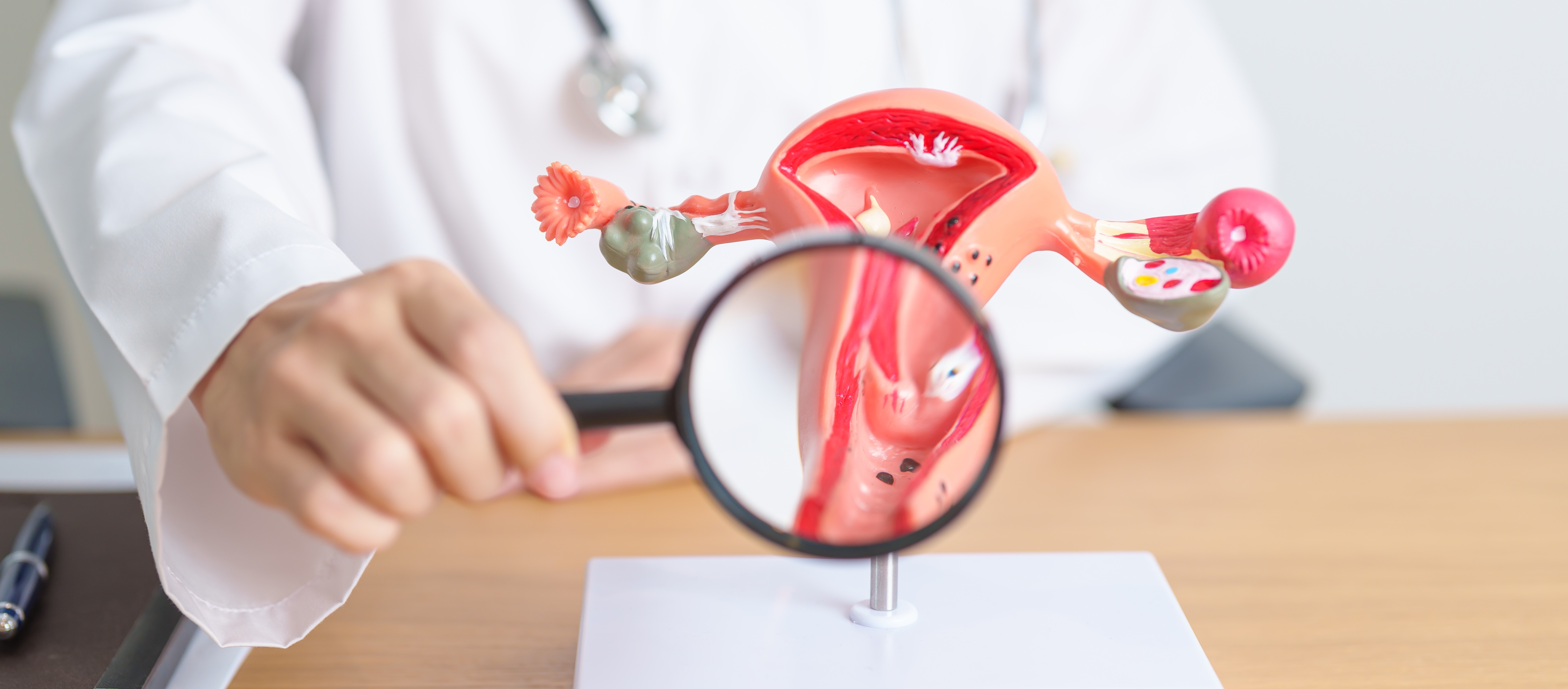Diabetes - Symptoms, Treatment, Causes, Types & More
Written By: Dr. Abdul Jabbar
Updated On:December 21, 2023

What is Diabetes?
Diabetes mellitus encompasses a group of conditions that impede your body’s ability to process blood glucose (sugar) due to no longer being able to produce insulin, a hormone made in the pancreas or resistant to insulin.
What causes diabetes?
Diabetes can be triggered by a variety of factors, the most important being excess weight or fat in body, family history (genes), unhealthy diet, sedentary lifestyle to pregnancy, excessive stress etc. The three types of diabetes have varying causes, detailed below.
Causes of Type 1 Diabetes
Type 1 diabetes is believed to be caused by an internal disorder related to the immune system. The immune system which is normally responsible for protecting your body against illness, viruses, & bacteria chooses to attack vital cells that produce insulin. Due to your body’s low or non-existent insulin, sugar begins to pile up in your blood.
Causes of Type 2 diabetes
Type 2 diabetes, a common chronic ailment among teenagers & adults, occurs when the cells in a person’s muscles, fat, & liver resist insulin. Due to this insulin resistance, people start gaining weight & if they do not change their eating behaviour & start exercising, sugar begins to pile up in the bloodstream, leading to Type 2 diabetes.
Type 2 diabetes risk is increased by:
- An unhealthy diet rich in starch, carbohydrates, & saturated fat.
- Long-term sedentary lifestyle & lack of movement & exercise.
- Excessive consumption of alcohol.
- Excessive stress leading to unhealthy lifestyle patterns.
Causes of Gestational Diabetes
Gestational diabetes is brought on by the body being unable to produce extra insulin to support an expectant mother’s bodily needs during pregnancy. It usually disappears after giving birth & can be managed with medical guidance.
Types of Diabetes
There are three primary types of diabetes: type 1, type 2 & gestational. Diabetes causes, treatment & management of the condition depend on which type of diabetes you have.
- Type 1 diabetes. While this condition may develop at any age, it’s most commonly seen in adolescents & children. If you have type 1 diabetes, your pancreas is creating little or no insulin. Patients need daily insulin injections to regulate their blood glucose levels.
- Type 2 diabetes. Unlike its type 1 counterpart, this type of diabetes is more frequent in adults. It also accounts for about 90 per cent of all diabetes cases, according to the International Diabetes Federation. With type 2, the body isn’t able to use the insulin produced by the pancreas effectively. Type 2 diabetes can be managed with a healthy lifestyle – primarily a balanced diet & regular exercise – as well as medications.
- Gestational diabetes. This occurs when blood glucose levels are high in pregnant women. While gestational diabetes may lead to complications for both fetus & mother, it usually disappears after the pregnancy. However, both mother & child may be at higher risk of developing type 2 diabetes later in life.
Difference between Type 1 & Type 2 Diabetes
The main difference between Type 1 & Type 2 diabetes depends on the body’s relationship with insulin. When a person has Type 1 diabetes, their diabetes symptoms are normally quicker to appear than a person with Type 2 diabetes. In the case of Type 1 diabetes, the immune system attacks insulin-producing cells. In the case of Type 2 diabetes, the body produces ineffective or an insufficient amount of insulin.
Type 1 diabetes still does not have a known cure; people with the condition take insulin to manage it. Type 2 diabetes, depending on its severity, can be managed with prescribed medication, exercise, & changes to diet & lifestyle
Symptoms of Diabetes
If insulin production or absorption in your body is affected by diabetes, you may experience a variety of symptoms. Given that there are three types of diabetes, a varying host of diabetes symptoms may present depending on the type & rapidity of onset of diabetes. It is important to remain aware of unusual changes in stamina, appetite, & general wellbeing. Early detection & management of diabetes can prevent medical complications.
General symptoms of diabetes to remain aware of are:
- Increased frequent urination.
- Drop-in energy or persistent fatigue.
- A tingling or numb feeling in your hands & feet.
- Increased hunger or thirst despite eating & drinking regularly.
- Sweet-smelling breath, similar to candy or fruit.
- Wounds that are slow to heal.
Symptoms of Type 1 Diabetes
With type 1 diabetes, symptoms may occur without prior warning. This variant of the condition shares many common warning signs with the more prevalent type 2 – the main differentiator diabetes symptom is the unexpected weight loss. The following symptoms have been known to occur after some kinds of viral illnesses:
- Abnormally high levels of thirst
- Feeling hungry even after eating
- Dryness in the mouth
- Vomiting & other symptoms of an upset stomach
- Frequent urination
- Unexpected weight loss, even with a normal appetite & eating patterns
- Tiredness
- Blurred vision
Symptoms of Type 2 Diabetes
Many of these are shared with type 1 diabetes, with a few additions. However, due to the lifestyle-driven nature of many type 2 diabetes symptoms, these usually occur more gradually over time. Sometimes they may be too mild to be noticed by patients. So, if you are overweight, above 30 years & have family history of diabetes or BP, you should check your glucose even without symptoms. When present the diabetes symptoms are as follows:
- Abnormally high levels of thirst
- Feeling hungry even after eating
- Frequent urination
- Unexpected weight loss, even with a normal appetite & eating patterns
- Tiredness
- Blurriness of vision
- Body sores that heal slowly
- Frequency of infections
Symptoms of Gestational Diabetes
It can sometimes be difficult to differentiate between the regular side effects of pregnancy & specific symptoms of gestational diabetes. Many pregnant women may experience no diabetes symptoms at all, though the condition is most likely to be diagnosed at a routine doctor’s visit after the sugar has been found in the mother’s urine.
- Higher-than-usual thirst.
- Frequent urination (in larger amounts than is typical for pregnant women).
- Tiredness (though this is also a normal pregnancy experience).
- Sugar detected in the urine, which can be found during a regular doctor’s check-up.
When to see a doctor for diabetes?
Seeing a doctor is advised if you have started experiencing an unusual change in stamina, appetite & thirst, or a general feeling of being unwell. Those that do not get enough exercise, have a sedentary lifestyle, or have a family history of diabetes are advised to seek medical attention if they spot signs of diabetes. Type-2 diabetes, the most common type of diabetes, can be managed with medical guidance, medication, & lifestyle adjustments
Risk Factors for Diabetes
Undetected diabetes can pose itself as a health risk. Depending on the type of diabetes, daily medication may be required. Left undiagnosed & unmanaged, you may be putting yourself at risk of developing medical complications.
Risk factors for Type 1 Diabetes
The biggest risk factor for type 1 diabetes in a child is if their parent or sibling also has the condition. Early exposure to certain viral illness can also increase a child’s risk of developing type 1 diabetes, as can the existence of damaging autoantibodies.
Risk factors for Type 2 Diabetes
While some type 2 diabetes risk factors are out of your hands, many are related to your lifestyle & can be managed. The main risk factors obesity, physical inactivity & a poor diet – can be modified through healthy eating & regular exercise, though some – age, family history & ethnicity – are out of the patient’s hands.
- Obesity: Obesity is a primary factor.
- Physical Inactivity: Physical inactivity increases the risk of type 2 diabetes.
- Family History: A parent or sibling having the condition increases your risk.
- Ethnicity: Studies indicate Black, Hispanic & Asian people may have a higher risk of developing type 2 diabetes.
- Age: The risk of developing the condition increases as you get older, particularly after 30.
- Prediabetes: If your blood glucose levels are higher than they should be, your risk of developing type 2 goes up as well.
- Gestational Diabetes: Pregnant women who had GSD while expecting have a higher risk of developing type 2, or who have previously delivered a baby heavier than 4.1kg.
Risk Factors for Gestational Diabetes
There’s a wide range of risk factors for gestational diabetes (GSD), though two of the biggest are being prediabetic or having had GSD in a previous pregnancy. While some risk factors – such as obesity, prediabetes, race, family history & physical inactivity – are shared with type 2 diabetes, women who suffer from PCOS are more likely to develop GSD. Here are the risk factors for GSD:
- Being overweight or obese.
- Physical inactivity.
- Having had GSD in a previous pregnancy.
- Having prediabetes.
- Polycystic ovary syndrome (PCOS).
- A close family history of any type of diabetes.
- Having previously delivered a baby weighing more than 4.1kg.
- Ethnicity – studies suggest that Black, Asian & Hispanic women may be more prone to developing GSD.
Complications of Diabetes
While diabetes is a common chronic condition & one that can be managed with medication & lifestyle changes, it must not be taken lightly. Neglected symptoms of diabetes & continuing an unhealthy lifestyle can have dangerous consequences.
Complications of Type 1 Diabetes include:
- Damage to the nerves & kidney
- Impaired vision or damage to the eyes
- Numbness or shooting pain in the hands & feet
- Digestive complications
Complications of Type 2 Diabetes include:
- Damage to the nerves
- Impaired vision & damage to the eyes
- Adverse impact on hearing
- Damage to the kidney
- Numbness in the hands & feet
- Disease of the heart & kidney
- Heart complications
Complications of Gestational Diabetes include:
- Giving birth to an overweight baby
- Premature birth
- Respiratory complications
- Low blood sugar levels
- Risk of developing Type 2 diabetes later in life
Treatment for Diabetes
Not all types of diabetes require medication for treatment. Mild cases of diabetes or pre-diabetics can be managed with professional guidance, lifestyle changes, & awareness. However, this depends on the severity of your condition. Seeking a doctor’s advice is highly recommended.
Treatment for Type 1 Diabetes
The most common treatments for type 1 diabetes are short - intermediate - & fast-acting insulin. Apart from that, monitoring carbs, fat & protein intake in one’s diet is important for type 1 diabetes patients, as is frequent monitoring of blood glucose levels.
Treatment for Type 2 Diabetes
Aside from lifestyle changes such as a healthy diet & regular exercise regime, there are also a number of medications that can help patients manage their condition:
- Metformin
- Sulfonylureas
- Meglitinides
- Thiazolidinediones
- DPP-4 inhibitors
- GLP-1 receptor agonists
- SGLT2 inhibitors
- Insulin
Due to the nature of gestational diabetes affecting both mother & child, it’s critical that women experiencing symptoms consult a doctor to begin diabetes treatment as early as possible. While a healthy diet, exercise & regular blood sugar monitoring may all help, between 10 & 20 percent of women with gestational diabetes may require insulin injections.
Preventing Diabetes
Not all types of diabetes can be prevented, although Type-2 diabetes can be prevented or delayed. Depending on the nature & stage of your condition, your doctor may suggest simple lifestyle adjustments & a more mindful approach to food & fitness.
If you are concerned about a sedentary lifestyle or your diet, here are some ways to prevent Diabetes:
- Exercise: If you spend most of your day sitting, schedule at least 30 minutes of physical movement every day. This could range from walking to exercising at the gym.
- Watch Your Weight & Diet: If you are overweight or obese, reduce the number of calories you consume per meal & try swapping processed food with natural food. Consider complex carbohydrates like lentils & sweet potatoes instead of fries, chips, & fried foods.
- Lifestyle Habits: Try to reduce the amount of alcohol & tobacco you consume.
- Manage Stress: If you regularly experience high levels of stress & get insufficient sleep, try altering your routine to make more time for relaxation & rest.
- Visit Your Doctor Regularly: If you have had an unhealthy lifestyle for a while, you may be at risk of being pre-diabetic. Getting a regular check-up will help you assess your health & lifestyle, giving you enough time & guidance to prevent diabetes.
Meet our doctors from the Endocrinology department

















